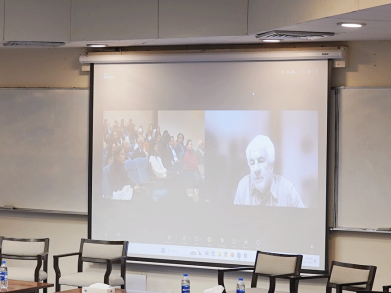
May 13, 2024
Disseration Title: “Towards ‘Real’ Islamic Finance: Essays on Islamic Venture Capital” by Abdullah Khan, Candidate PhD Management.
Date: Monday, May 13, 2024
Time: 10:00 am
Venue: Faculty Lounge (SDSB building, 4th floor)
Zoom link: https://lums-edu-pk.zoom.us/j/97469559297?pwd=SndYR0xDeHl5NVNaTmUvMGJXW…
Meeting ID: 974 6955 9297
Passcode: 404815
Dissertation Defence Committee
Dr. Bushra Naqvi - Supervisor & Chair
Dr. Syed Aun R. Rizvi – Co-Supervisor
Dr. Salma Zaman – Member SDSB
Dr. Omair Haroon – Member SDSB
Dr. Hadia Majid ‐ Member LUMS
Dr. Irum Saba - External Examiner IBA
Abstract
Following the global financial crisis of 2007, the Islamic finance industry has experienced exponential growth and limelight. The value proposition of Islamic finance is derived from its unique profit and loss sharing paradigm. At its core, Islamic finance, also known as Shariah-compliant finance, emphasises risk sharing and prioritises equity contracts over debt financing. However, despite four decades since the inception of modern Islamic finance, Islamic banks—the cornerstone of the financial market—have maintained a low share of equity-based contracts. This situation has raised concerns among pioneers of Islamic finance industry, regulators of Islamic financial institutions, customers of Islamic banks, and academia. To mitigate this situation, many advocate for a shift towards venture capital financing, as Islamic equity contracts align more closely with entrepreneurial finance contracts found in the private equity industry. It is argued that the ideal place to offer ‘real’ Islamic finance is the venture capital industry [Al-Suwailem (1998), Ahmad (2005), Azmat et al. (2015), Akbar and Haeikaly (2017)]. However, whether Islamic venture capital investments would be financially viable is not a foregone conclusion. This dissertation investigates whether Shariah compliance adds value for the three key stake holders of the venture capital industry: venture capital investors (limited partners), managers of venture capital funds (general partners), and users of venture financing (entrepreneurial firms).
Using extant data available on Bloomberg regarding liquidated private equity investments from 1967 to 2019, this dissertation demonstrates that, unlike the equities market, there are no off-the-shelf solutions available in venture capital industry for Islamisation. There are hardly any venture capital investments that can be categorised as fully Shariah compliant based on existing Islamic equity screening criteria, thus hindering stakeholders from reaping the benefits of Shariah value addition. At best, there are ‘Shariah-friendly’ strategie,s which are only partially Shariah compliant.
Chapter 1 introduces Musharakah financing, and the challenges faced by the Islamic finance industry in transitioning towards profit and loss sharing contracts. Chapter 2 reviews the existing research in Islamic finance, drawing insights from literature published in leading mainstream economics and finance journals, and identifies research gaps. Chapter 3 examines the impact of Shariah compliance on limited partners (investors) and provides empirical evidence that even partial Shariah compliance leaders to superior financial returns for the limited partners (investors) in the private equity industry. Chapter 4 studies the impact of Shariah compliance on general partners (managers of private equity funds) and suggests the benefits of partial Shariah compliance, including lower bankruptcy rates and higher IPO rates. Chapter 5 focuses on the last key stakeholder of the private equity industry and discusses how, unlike limited partners and general partners, Shariah compliance may negatively affect entrepreneurial firms. Chapter 6 concludes that any move towards nudging the Islamic finance industry towards venture capital investments requires careful consideration and presents policy implications based on the findings of this dissertation.



















